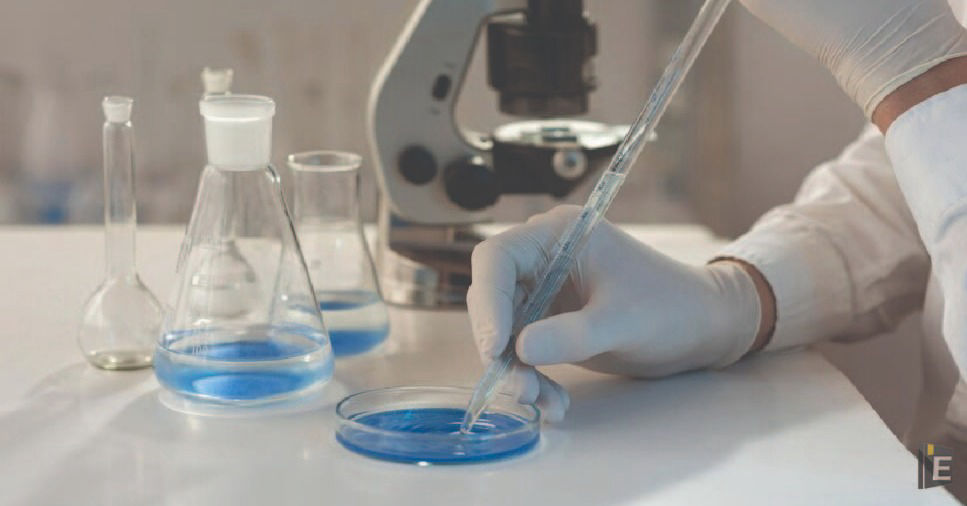Basic Science GK Quiz for Competitive Exams

Welcome to our Basic Science GK Quiz blog, where curiosity meets knowledge! Dive into the fascinating world of science with our collection of engaging quizzes designed to test your understanding of fundamental scientific concepts. Whether you're a science enthusiast, a student, or just someone eager to expand your general knowledge, our Basic Science GK Quiz covers diverse topics like physics, chemistry, biology, and more. Challenge yourself, learn something new, and have fun while exploring the wonders of the scientific universe. Get ready to spark your scientific curiosity and boost your knowledge with our interactive quizzes!
Basic Science GK
In this article Basic Science GK Quiz for Competitive Exams, we are providing the most important Basic Science questions related to Physics, Chemistry, Biology and Basic Science for that learner who are preparing for upcoming competitive exams.
Also, Read Latest Current Affairs Questions 2023: Current Affairs Today
"Stay ahead of the competition with our General Knowledge Mock Test and Current Affairs Mock Test!"
Basic Science GK Quiz for Competitive Exams
Q : Which of the gas is not known as green house gas?
(A) Methane
(B) Hydrogen
(C) Nitrous oxide
(D) Carbon dioxide
Correct Answer : B
Explanation :
Whereas oxygen, nitrogen, and argon are not examples of greenhouse gases.
Limestone, chalk and marble are different forms of ______.
(A) Calcium phosphate
(B) Calcium hydroxide
(C) Calcium oxide
(D) Calcium carbonate
Correct Answer : D
Explanation :
Limestone , chalk and marble are different forms of calcium carbonate.
The body of the ______ is circular in cross-section, hence, the name roundworms. They may be free-living, aquatic and terrestrial or parasitic in plants and animals.
(A) Platyhelminthes
(B) Ctenophores
(C) Mollusca
(D) Aschelminthes
Correct Answer : D
Explanation :
The body of the aschelminthes is circular in cross-section, hence, the name roundworms. They may be free living, aquatic and terrestrial or parasitic in plants and animals. Roundworms have organ-system level of body organisation. They are bilaterally symmetrical, triploblastic and pseudocoelomate animals.
Consider statements (A) and (B) about conventional energy and choose the correct answer.
Statement (A): Conventional sources of energy are those whose occurrence is in
Statement (B): limited local area and which have been in everyday use for a long Atidacti time. Only fossil fuels are sources of conventional energy.
(A) Both (A) and (B) are true (2) Both (A) and (B) are false
(B) Both (A) and (B) are false
(C) (A) is true but (B) is false
(D) (A) is false, (B) is true
Correct Answer : B
Explanation :
Conventional sources of energy are those which have been in common use for a long time. Firewood and fossil fuels are the two main conventional energy sources.
Resources which are found in a region, but have not been utilised are known as
(A) waste resources
(B) valuable resources
(C) potential resources
(D) actual resources
Correct Answer : C
Explanation :
The resources which are found in a region but have not been utilized are called potential resources.
Recently researchers from which state have identified two new species of fungus belonging to the genus Ganoderma?
(A) Tamil Nadu
(B) Kerala
(C) Karnataka
(D) Assam
Correct Answer : B
Explanation :
Researchers from Kerala have identified two new species of fungi from the genus Ganoderma that are associated with coconut stem rot. They have also genotyped the two fungi species, named Ganoderma keralense and G.
Which of the following represents an ascending order as per the size of particles?
(A) Rock, Clay, Sand, Gravel, Silt
(B) Clay, Silt, Sand, Gravel, Rock
(C) Silt, Clay, Sand, Gravel, Rockgniv
(D) Rock, Gravel, Sand, Silt, Clay
Correct Answer : B
Explanation :
The soil particles' with the increasing order of their particle sizes can be shown as: Clay < Silt < Sand < Gravel < Rock.
Which among the following is not a source of fresh water?
(A) Ocean
(B) Rivers
(C) Ponds
(D) Glaciers
Correct Answer : A
Explanation :
The river is the source of fresh water. Freshwater can be found in glaciers, lakes, reservoirs, ponds, rivers, streams, wetlands and even groundwater. Out of all the water on Earth, just 3% is fresh water. About three-quarters of Earth's freshwater is stored in glaciers. Therefore, glacier ice is the second largest reservoir of water on Earth and the largest reservoir of freshwater on Earth! Hence we can say that Ocean is not a source of fresh water.
As we go up the layers of the atmosphere
(A) the pressure increases but the temperature decreases.
(B) the pressure decreases but the temperature increases.
(C) the pressure and the temperature remain the same.
(D) the pressure decreases but the change in temperature varies
Correct Answer : B
Explanation :
As we go up the layers of the atmosphere, fewer air molecules are above us. So, there will be less weight of air above us. Hence, atmospheric pressure always decreases as we move upward in the atmosphere.
How many degrees does the earth rotate in an hour?
(A) 90°
(B) 60°
(C) 30°
(D) 15°
Correct Answer : D
Explanation :
The Earth rotates through 15° each hour so to rotate through 30° degrees it would take 2 hours. We use a system of imaginary lines to tell us where we are on the surface of the Earth. A series of imaginary circles – called lines of latitude – tell us how far North or South of the Equator we are.



